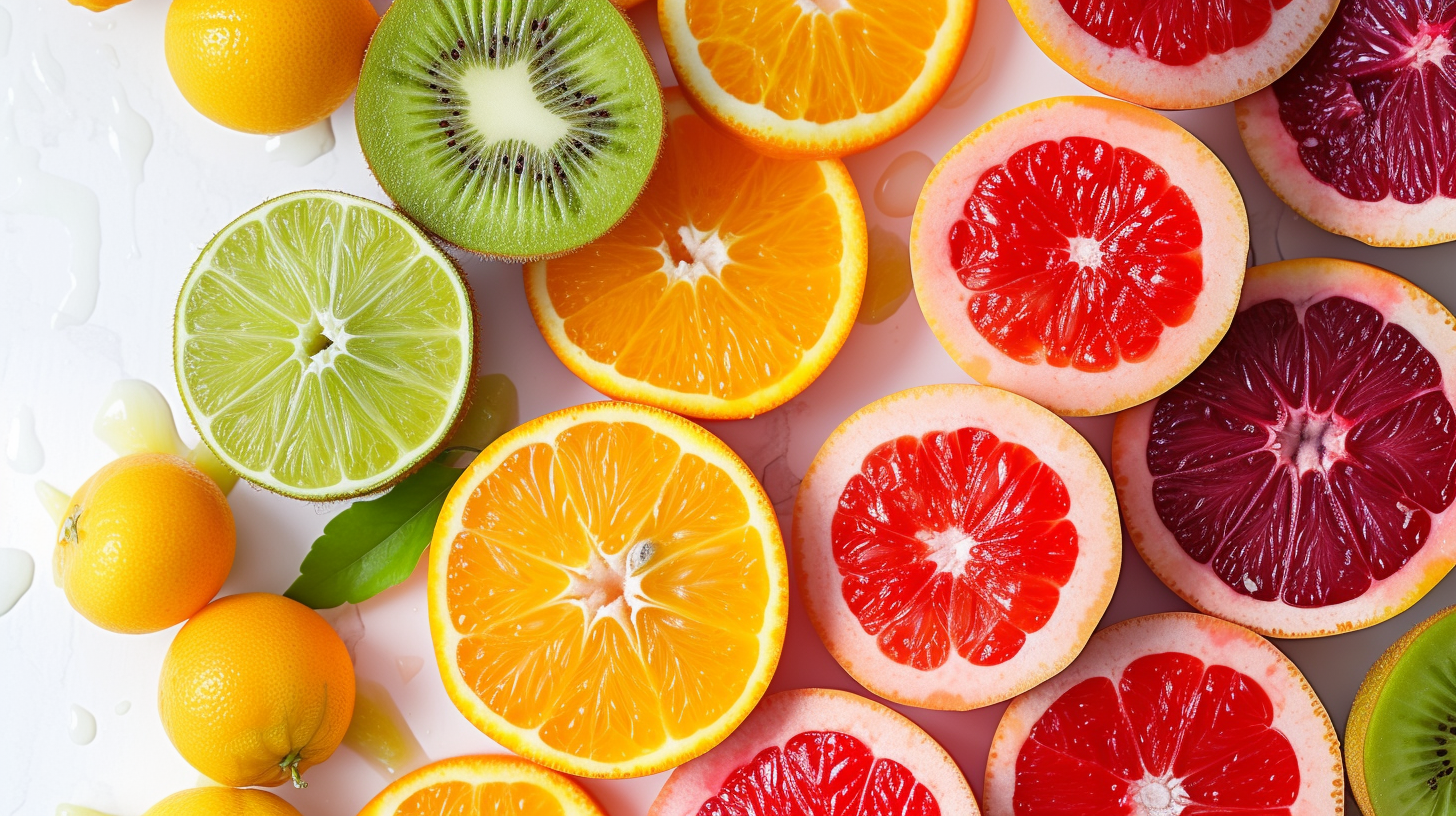Did you know that nearly 60% of people report experiencing unusual food cravings at some point in their lives? If you’ve found yourself longing for acidic foods, you’re certainly not alone.
This craving might be your body’s way of signaling something more beneath the surface, such as a potential deficiency or an imbalance in your digestive system.
Factors like low stomach acid, stress levels, and even certain infections could be playing a role.
Key Takeaways
- Craving acidic foods can indicate low levels of stomach acid.
- Acidic food cravings may be a sign of deficiency in healthy saturated fats and omega-3 fatty acids.
- Addressing nutritional deficiencies can help alleviate cravings for acidic foods.
- Mindful eating, apple cider vinegar, and reducing stress while eating can increase stomach acid levels.
Nutritional Deficiencies Explained
Understanding why you’re craving certain foods can often reveal nutritional deficiencies your body is trying to combat.
When you find yourself drawn to acidic foods like lemons, limes, or vinegar, it’s not just a random preference.
These cravings could be your body’s way of signaling that it’s struggling with low levels of stomach acid.
Stomach acid is crucial for digestion and absorption of nutrients, and without enough of it, you mightn’t be getting all the nourishment your body needs.
Similarly, if you’re constantly craving fats, don’t brush it off. This could indicate a deficiency in healthy saturated fats and omega-3 fatty acids.
Your body relies on these healthy fats for various functions, including hormone production and cell membrane integrity.
Ignoring these cravings and the nutritional deficiencies they hint at could lead to further health issues down the line.
Salt cravings shouldn’t be overlooked either. They might be your body’s cry for chloride, a component of salt necessary for maintaining proper fluid balance and blood pressure.
Chronic stress and adrenal insufficiency often exacerbate these cravings, highlighting the body’s attempt to restore balance.
Sugar cravings are another common complaint, especially among those on low-carb diets or those trying to diet.

The Role of Stress and Mood
While exploring why you’re drawn to certain foods, it’s also crucial to consider how stress and mood play a significant role in these cravings.
Stress and anxiety often trigger a desire for acidic foods as a way to self-medicate. This reaction is your body’s attempt to elevate serotonin levels in the brain, seeking a mood boost through food.
But it’s important to understand how these cravings, influenced by stress and mood, can impact your overall health, particularly when it leads to a preference for comfort foods that mightn’t always align with nutritional needs.
Here are some key points to remember:
- Stress can lead to salt cravings, which might be your body’s way of coping by seeking chloride, essential for stress response.
- Emotional distress often triggers cravings for comfort foods, potentially leading to an unhealthy cycle of junk food consumption.
- Lack of sleep disrupts hormonal balance, increasing appetite and cravings, especially for sweets, further complicating stress and mood regulation.
- Understanding Eastern Medicine’s Hot vs. Cold theory may offer additional insights into how stress and mood influence food cravings, including those for acidic foods.
Incorporating foods rich in healthy saturated fat and fatty acids, like seafood and coconut oil, can support your digestive system and mood regulation without contributing to digestive issues or heart disease.
Recognizing the link between craving acidic foods, stress, and mood can help you make more informed choices, potentially easing stress-induced cravings while supporting your overall health.
Stomach Acid Levels and Digestion

It’s easy to forget that acid is your body’s natural way of breaking down food, ensuring nutrients are absorbed properly.
If you find yourself craving acidic foods, it might be a sign that your body is trying to tell you something about your stomach acid levels and digestion.
Low levels of stomach acid can lead to a range of digestive discomforts, including food allergies, constipation, and general dysfunction in how food is processed.
This is because without adequate acid, your stomach struggles to break down food, leading to symptoms that can make you start craving for something acidic.
Your body is essentially attempting to self-correct the imbalance by signaling a desire for acidic foods.
Chronic stress, poor dietary choices, infections like h-pylori, and nutritional deficiencies are common culprits that contribute to diminished stomach acid levels.
Recognizing these factors is the first step towards addressing the root cause of your cravings and digestive issues.
Fortunately, there are ways to naturally increase your stomach acid and improve digestion, which, in turn, can help alleviate your craving for acidic foods.
Simple adjustments, such as mindful eating, adding apple cider vinegar or lemon water to your diet, and avoiding eating when stressed, can make a significant difference.
Taste Preferences and Variations
Your taste preferences, shaped by genetics, culture, and early flavor experiences, can significantly influence your food choices and cravings.
If you’re finding yourself reaching for that bag of salt and vinegar chips or puckering up for a lemon, it’s not just random; it’s tied to how your taste buds interact with various flavors.
You might be craving acidic or salty foods for several reasons, and understanding these can help you navigate your cravings more effectively.
Here are a few key points to consider:
- Genetic makeup: Your unique genetic blueprint determines sensitivity to tastes, which means you might experience cravings for salty or sour foods more intensely than others.
- Cultural influences: The cuisine you were exposed to growing up can shape what flavors you commonly crave, including a preference for pungent foods or a certain zest in your meals.
- Psychological factors: Sometimes, craving is a sign of emotional eating. Stress or seeking comfort in food can lead you to crave certain flavors, including acidic ones.
- Health-related changes: Pregnancy, aging, and even food allergies can alter your taste levels and preferences, leading to an increased desire for foods with distinct flavors.
Hormonal Influences Uncovered

Hormonal imbalances, especially prevalent in women, can significantly influence your cravings, leading you to seek out certain foods.
When you’re experiencing low energy or weight gain, it’s not uncommon to find yourself craving salt or sugary snacks.
This isn’t just about willpower; it’s a clear sign of hormonal influences uncovered. Your body might be signaling insulin resistance or a need for certain nutrients.
For instance, lack of sleep can throw off your hormonal balance, pushing you towards unhealthy food choices in an attempt to boost your mood or energy levels.
This is because sleep deprivation affects your body’s serotonin levels, a hormone that influences mood and appetite.
During pregnancy, these cravings can become even more pronounced due to significant hormonal changes.
It might seem like your body has a mind of its own, leading you to specific tastes and textures.
However, by choosing healthy alternatives rich in good fats, amino acids, and ensuring you’re drinking water, you can manage these cravings more effectively.
These nutrients play a vital role in fat burning and maintaining a balanced mood, which can help mitigate the intensity of your cravings.
Conclusion
In conclusion, if you’re craving acidic foods, it might be your body signaling a deeper issue, like low stomach acid, nutritional deficiencies, or stress.
It’s crucial to listen to these cues and consider how your diet, mood, and health could be influencing your cravings.
You’ve got several natural ways to boost your stomach acid and improve digestion.
Don’t ignore these signals; instead, see them as a prompt to take better care of your digestive health.